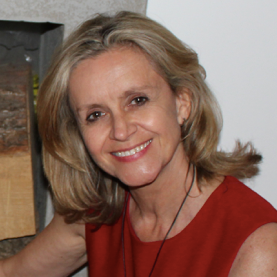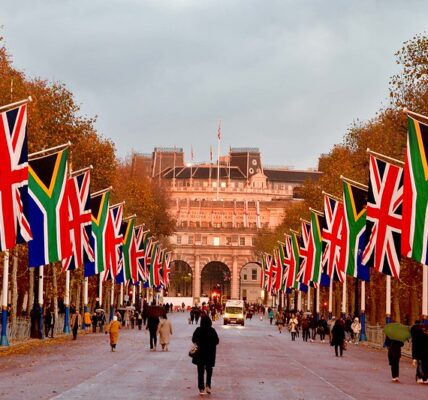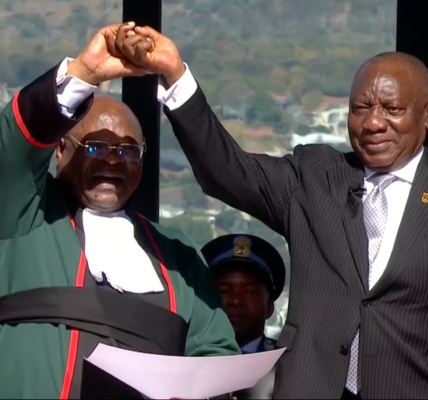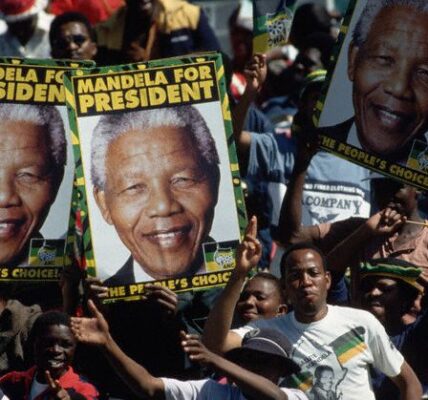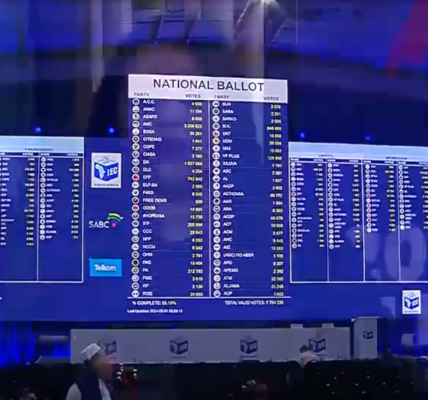South Africa is entering uncharted waters as the ruling African National Congress, following its historic loss of a parliamentary majority, has to decide within the next fortnight on who it will choose as a coalition partner to lead the country. It faces a binary choice between the market-oriented Democratic Alliance and the umKhonto weSizwe( MK Party) of former President Jacob Zuma, which has threatened violence and is spreading the narrative online that the election has been rigged. President Cyril Ramaphosa is reported to be advocating a unity government.
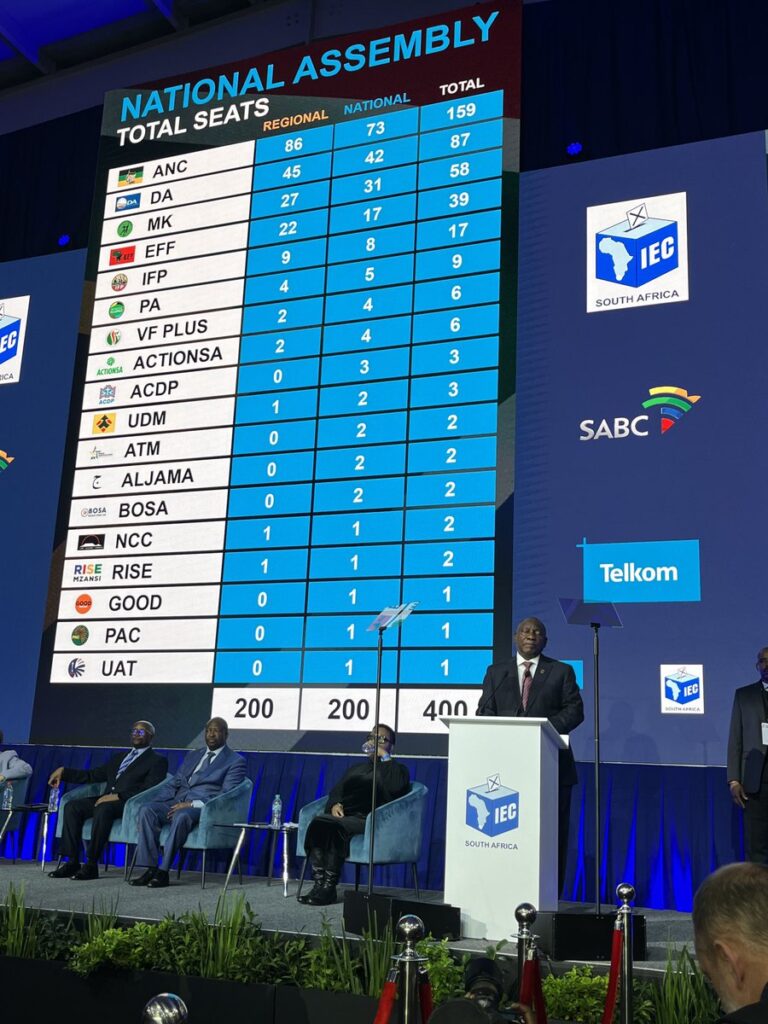
The elections in South Africa were a moment of reckoning for the African National Congress, Nelson Mandela’s former liberation movement. After three decades in power, the party had succumbed to corruption and mismanagement, with an elite leadership disconnected from the struggles of ordinary citizens.
The electorate unequivocally expressed their dissatisfaction, and when the final results were unveiled by the Independent Electoral Commission (IEC), it was clear that the ANC had lost its majority and would now need to forge coalitions. Of the 400 seats in the National Assembly, the ANC secured only 159.
The Democratic Alliance (DA) emerged as the second-largest party in Parliament with 87 seats, followed by the newly established UmKhonto we Sizwe Party (MKP), led by former President Jacob Zuma, which claimed 58 seats. The Economic Freedom Fighters (EFF), another populist party, secured 39 seats. The Inkatha Freedom Party (IFP), part of the centrist Multi-Party Charter with the DA, gained 17 seats.
Zuma Threatens IEC, Attempts to Delay Election Results Declaration
Zuma’s entry into the election with the newly formed MKP was the main reason for the ANC losing its majority. The MKP managed to secure 14.59% of the votes in the country, drawing support primarily from the Kwazulu-Natal province and Zulu-speaking populations in pockets of Gauteng and the Mpumalanga provinces.
Zuma, a Trump-like figure in South Africa, portrays himself as a victim of conspiracy and a champion for the oppressed and marginalised. However, his primary goal is to gain the power necessary to extricate himself from his legal troubles.
Accused of multiple counts of corruption over a multibillion-dollar arms deal in 1999 with French company Thales, Zuma is alleged to have accepted hundreds of bribes to help Thales secure the deal. Despite his repeated claims of wanting his day in court, he has employed delaying tactics, known as the Stalingrad defence strategy, to prevent the court case from proceeding.
Due to a conviction for contempt of court for refusing to appear before the Zondo Commission, Zuma cannot become a member of Parliament.
On the eve of the election results announcement, Zuma attempted to delay the declaration by telling the IEC that he did not want a declaration on Sunday, claiming it would be tantamount to “provoking” his new MK Party.
Zuma’s threats included statements such as:
“The results are not correct … results should not be declared. If you’re declaring, you’re provoking us. Don’t start trouble … there’s nobody who is going to die if we do not announce tomorrow … nobody is going to announce tomorrow.”
The MKP has also called for a recount and a commission of inquiry into the elections and has threatened to take legal action against the IEC. Zuma described the complaints brought to the IEC as “very, very serious.”
Despite Zuma’s threats of potential trouble if the IEC proceeded with the declaration, the IEC announced the results on Sunday evening, 2 June.
MK Party ‘Conspiracy Movers’ Spread Online Claims of Rigged Votes
A South African group called Superlinear, who has been investigating activity on social media platform, X during the elections, has created a map of the main groups pushing the narrative that the elections were rigged and were a “Big Lie.” They identified the MK Party as the conspiracy’s prime movers. Some of these movers were EFF-aligned influencers who, according to Superlinear, joined later when an ANC-DA coalition became a possibility. Their post has been viewed 27,000 times.

Peter Bruce, a senior opinion writer for the Sunday Times in South Africa questioned whether Zuma’s rise could be considered as some form of a coup in the country given that it is not known who is financing the MKP.
What’s Next for the ANC and South Africa? President Cyril Ramaphosa Calls for Common Ground
A period of intense negotiations on possible coalitions or collaboration has already started, with ANC insiders telling the Sunday Times in South Africa that they are looking for a unity government.
Although South Africa does not have a history of coalition governments, it had a Government of National Unity (GNU) from the beginning of the democratic era in 1994 until 1999. All parties with more than 10 percent of support participated in the GNU.
The National Party, led by FW de Klerk, ruled South Africa until the end of apartheid and withdrew from the GNU in 1996. De Klerk declared that his withdrawal was prompted by a lack of influence on government policy. Former President Nelson Mandela initially kept the incumbent Minister of Finance, Derek Keys, in his post to ensure continuity, and then entrusted the finance portfolio to a former banker, Chris Liebenberg.
In his speech as State President after the announcement of the election results, President Cyril Ramaphosa called on political parties to work together for the good of the country. He said, “South Africans expect the parties for which they have voted to find common ground, overcome their differences, and act together for the good of everyone.” He called the election a “victory for our democracy.”
Can Ramaphosa Survive?
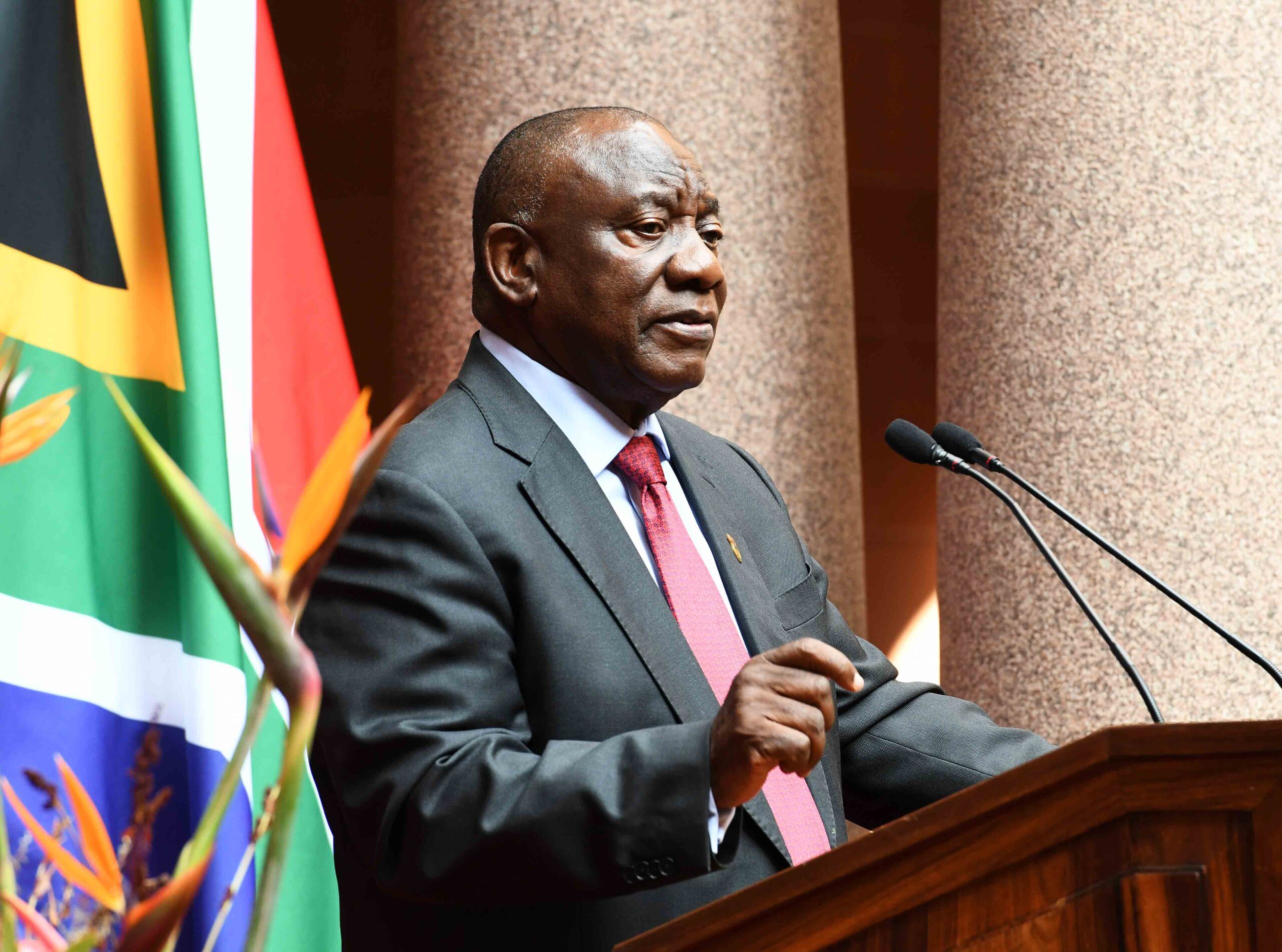
Ramaphosa is the first ANC president to lead South Africa to a defeat, fuelling speculation that his days may be numbered. However, the ANC’s Secretary-General, Fikile Mbalula told a press conference that, “That is a no-go area.”
The ANC’s National Executive Committee is expected to meet on Tuesday to plot the path forward.
The Democratic Alliance, which will be the official opposition in the National Assembly, has pulled together veterans for its team that will lead negotiations with the ANC. This team includes the federal chairman of the party, Helen Zille, known as a tough negotiator, and former party leader Tony Leon, who was one of the key negotiators of South Africa’s Constitution in the 1990s.
Former ANC President Thabo Mbeki described Leon as a man who “has the bark of a bull terrier.”
DA leader John Steenhuisen said in an address to the nation that the party was ready to form a coalition and that their task was to rescue South Africa from what he called a “Doomsday Coalition.”
A Binary Choice for the ANC: Sharing Power with the DA or the MK Party
South Africa’s new Parliament will have its first sitting in 14 days, when a new Speaker is expected to be elected. The Members of the House of Assembly will then have 30 days to elect the country’s new head of state.
A coalition with the Economic Freedom Fighters (EFF) of Julius Malema is not feasible, as the EFF does not have the required number of seats to help the ANC reach the 201 seats needed to elect the Speaker of Parliament or the President.
This leaves the ANC with two options: working with either the Democratic Alliance (DA) or the MK Party. However, the MKP has indicated it will not accept Mr. Ramaphosa as President.
Dr Frans Cronje from the Social Research Foundation described a scenario where the ANC does not support Mr. Ramaphosa and allows Zuma back in as a “Chernobyl option.” The MKP’s manifesto includes abolishing the country’s Constitution, nationalising the South African Reserve Bank, and other radical socialist policies, such as plans to send pregnant teenagers to Robben Island.
The other option for the ANC is to form an alliance with the DA, which is what investors and financial markets are hoping for. South Africa, the Economist wrote is on the brink of salvation or catastrophe.
Bruce also commented on a potential collaboration between the ANC and the DA, saying that the two parties could work together “to right a shaken South Africa” and that it would “stabilise the economy and begin to make a real dent in unemployment and poverty.”
South African Authorities Must Take Zuma’s Threats of Violence Seriously
South Africa is entering unchartered waters without the dominance of the ANC and the decision that the ANC will be making in the next fortnight would have far-reaching consequences.
Analysts have long feared that Zuma’s party might stir up trouble, especially considering the violent riots and looting that followed Zuma’s arrest for contempt of court in 2021.
Given Zuma’s track record, the threats and increase in social media posts questioning the legitimacy of the election, the repeated attacks on Janet Love, one of the IEC Commissioners should not be taken lightly. Last night Zuma’s daughter, Dudu Zuma-Sambudla called for the arrest of Love and keeps on calling the election result a heist.
South Africa still bears the scars from the deadly riots, which led to 350 deaths, the looting of 200 shopping malls, and an estimated 15,000 lost jobs. These riots were incited in support of Zuma, highlighting the potential for significant unrest if his supporters reject the election results.
The ANC government was unprepared for the violence in KwaZulu-Natal in 2021, with police and security forces taking a long time to respond. Last night the country’s Police Minister, Bheki Cele said at a news conference that the country’s security cluster was ready to tackle any instability.
If incidents of violence do break out, it is crucial that the security services act swiftly to prevent a repeat of the 2021 unrest. Effective and immediate action by the security forces can help mitigate the risk of widespread violence and maintain stability in the country.


